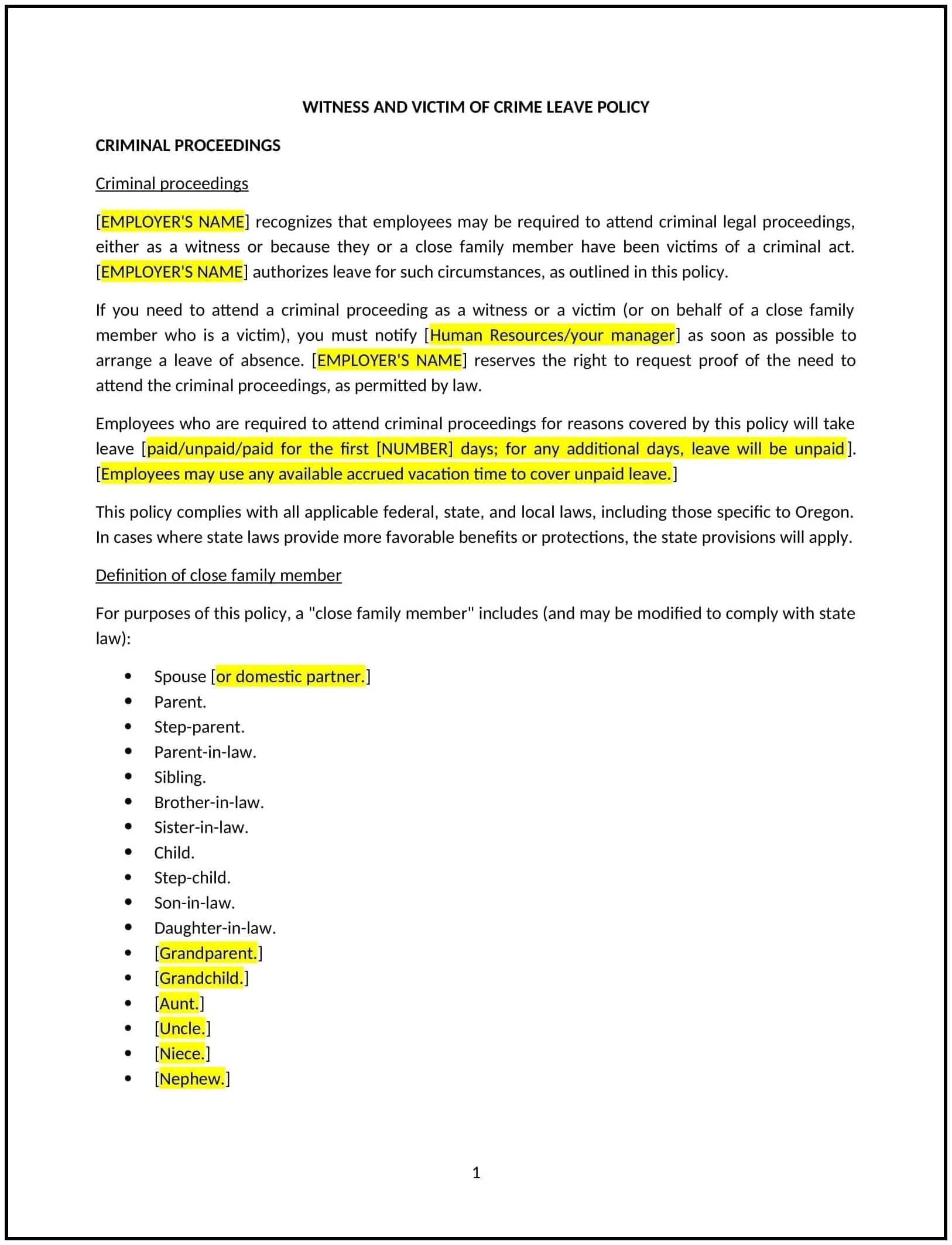Witness and victim of crime leave policy (Oregon): Free template
Got contracts to review? While you're here for policies, let Cobrief make contract review effortless—start your free review now.

Customize this template for free
Witness and victim of crime leave policy (Oregon)
This witness and victim of crime leave policy is designed to help Oregon businesses provide support to employees who need time off to fulfill legal obligations as a witness or attend to matters related to being a victim of a crime. The policy outlines eligibility, notification requirements, and procedures for managing such leave.
By implementing this policy, businesses can demonstrate support for employees while maintaining operational efficiency.
How to use this witness and victim of crime leave policy (Oregon)
- Define eligibility: Specify which employees are eligible for leave, such as those subpoenaed as witnesses, attending court as victims, or supporting family members affected by crime.
- Establish notification requirements: Require employees to provide advance notice and relevant documentation, such as a subpoena or court order.
- Outline leave provisions: Clarify whether the leave is paid, unpaid, or partially paid, based on the nature of the obligation and company policy.
- Maintain confidentiality: Emphasize that all employee-related information regarding the leave will be handled discreetly.
- Provide support resources: Include references to local victim support organizations or counseling services if applicable.
- Address return-to-work procedures: Outline steps for employees to resume work after the leave, ensuring a smooth transition.
- Review regularly: Periodically assess the policy to reflect changes in Oregon laws or workplace practices.
Benefits of using this witness and victim of crime leave policy (Oregon)
Implementing this policy provides several advantages for Oregon businesses:
- Supports employee well-being: Provides employees with the flexibility and understanding they need during challenging times.
- Demonstrates empathy: Shows that the business values and supports employees facing legal or personal challenges.
- Promotes compliance: Aligns with Oregon’s legal requirements regarding leave for witnesses and victims of crime.
- Ensures operational clarity: Clear procedures minimize disruptions while accommodating employee needs.
- Reflects Oregon-specific considerations: Tailoring the policy to state laws ensures practicality and relevance.
Tips for using this witness and victim of crime leave policy (Oregon)
- Communicate clearly: Share the policy with employees to ensure they understand their rights and responsibilities.
- Encourage transparency: Foster an environment where employees feel comfortable notifying the business about their need for leave.
- Plan for coverage: Coordinate workloads and assignments to manage potential disruptions caused by employee absences.
- Maintain open communication: Check in with employees before and after their leave to ensure they feel supported.
- Monitor legal updates: Stay informed about changes to Oregon laws regarding leave for witnesses and victims of crime.